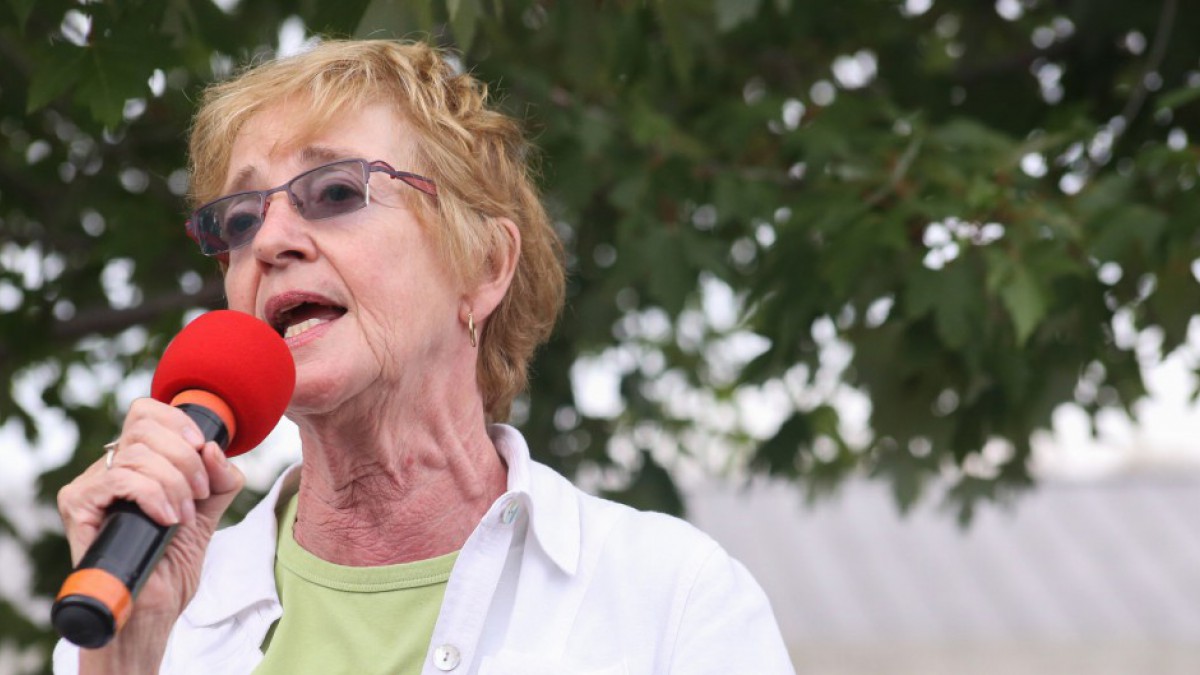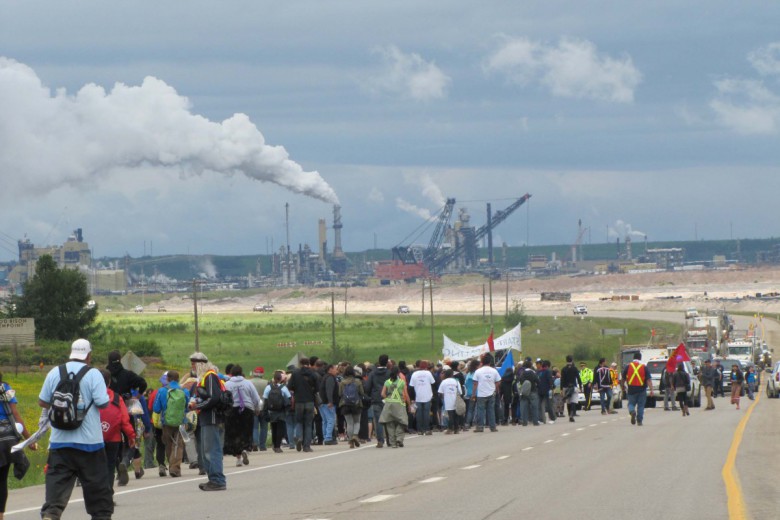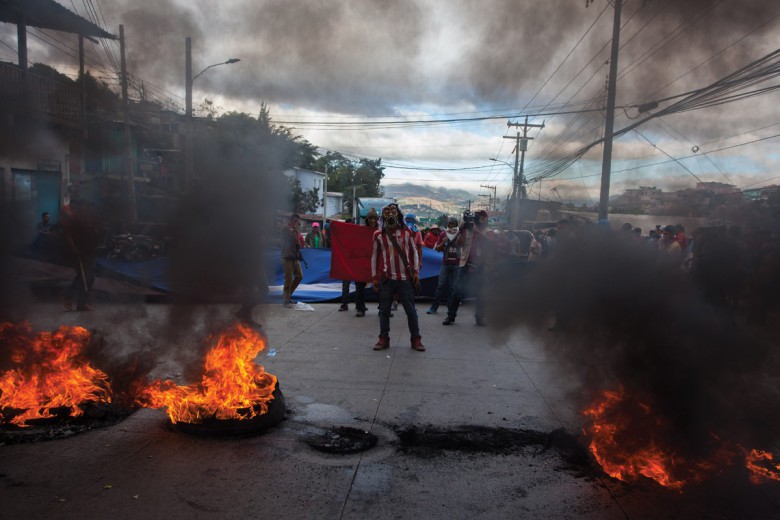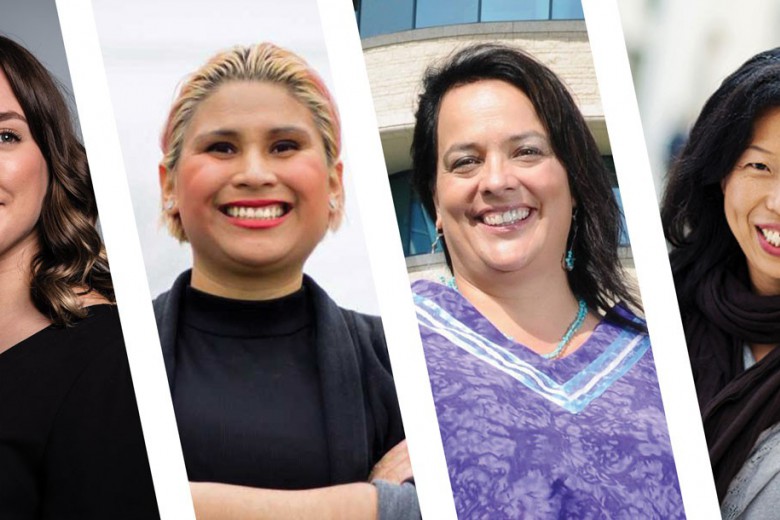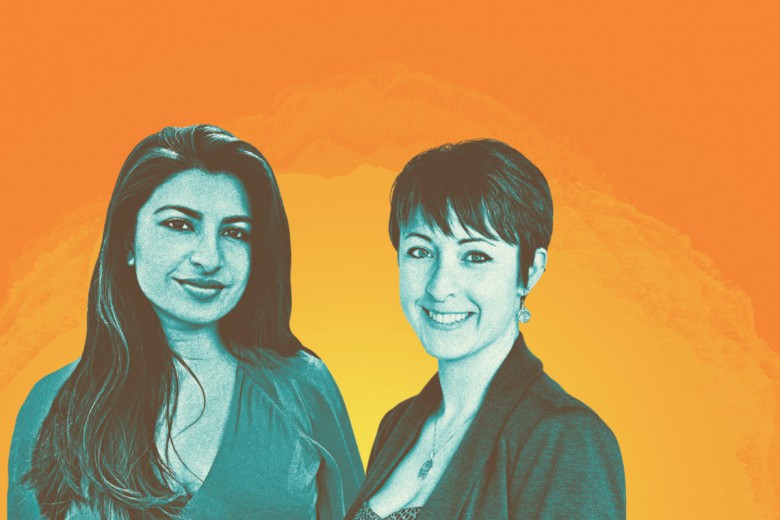Upstream tries to use health and our understanding of social determinants of health as a way of navigating other key political issues. What do you think of this notion – using health, as a lens to get people engaged in other issues – be they environmental, economic, etc.?
Maude Barlow: If we can get people to understand that health isn’t just about going to a doctor and taking your vitamins in the morning, then people can begin to recognize that there are all sorts of social determinants of health and that healthy people and healthy societies go hand-in-hand. With this understanding of health, then yes, this notion is a door into a bigger debate and bigger discussion, so I think it is a terrific idea.
How does the Go Vote! campaign and the information that you are talking about in the Broken Covenant Report relate to the health of Canadian society?
The Broken Covenant Report is about how Stephen Harper and his government deliberately set out to “clear cut” the civil society movement in this country. One way this was done was by outlawing the use of government money for any kind of advocacy and going after the charitable status of organizations that dare to criticize its politics, its philosophy, etc. Government funding that was previously used to promote literacy, services for disabled persons, issues around homelessness, or social housing, was cut. The report tells the story of how we built a healthy civil society movement, partly through taxpayers money coming back to groups which advocate for justice, how and why that has been cut, and how important it is to fight back.
It’s been slash-and-burn in the health field, as in many other areas. Funding cuts have been made to institutions, councils, and health information organizations that were originally put in place to provide independent thought and help Canadians advocate for better health care. The ability of Canadians to advocate for what we believe in has really been targeted by this government. This is a warning that we are giving on this Go Vote! tour. We’re trying to get Canadians to go out and stand up and be counted, so that we can take our country back.
You’ve touched on the growing gap in the availability of evidence in this country. In talking about evidence-based policy and using the knowledge available to us to make the wisest decisions, do you think that it has been a deliberate decision to try and make information less available to Canadians?
I’m convinced that it’s a direct and desired outcome of the government’s behaviour. Evidence is being squashed, as is evident by the over 2000 researchers and scientists that have lost their jobs. Many institutions and research centres that provide us with information, for instance on environmental health, or healing centres and health programs for First Nations and young people have been shut down.
The National Council of Welfare was killed, which has been keeping statistics on poverty, health and wellbeing for decades. The government has also shut down a lot of the archives and libraries that held information about Canadian health and wellbeing. They’ve also cut their long-form census, which gave us important information on demographics, health, First Nations, and new Canadians – all of the information we need to make good policy. So much of it is gone now, and it has been absolutely deliberate, in my opinion.
These are areas that provided services and independent information and I think this deliberate action by the government is because they don’t want to be challenged. They want to put their money where they want to put their money and don’t want people who are knowledgeable with the ability to be critical and armed with information to challenge them.
What are some of the positives that Canadians might see regarding their health in the upcoming election?
I think there’s a desire for change and certainly we saw that in Alberta. One of the facts that we are pointing out is that a lot more people voted in the Alberta election than the last time they went to the polls. It was about a 10 per cent higher voter turnout, which shows us that when people feel like their vote makes a difference and they come forward, they actually do make a difference.
Seeing a revival of this notion that individuals can make a difference, that they have a responsibility to do something and that people must not only get out to the polls but they have to start to get involved in politics, whether partisan or not, is positive. I’m finding a renewal of that kind of energy, after a number of people feeling kind of beaten up, and I personally believe when you take actions, move to make things better and decide that you can make a difference yourself or with others in your community, that’s good for your health. I think swallowing anger and feeling enraged and powerless is not only disempowering but that it’s terrible for you health. I say to people all the time, become an activist, you know it will keep you healthier than anything else could.
Are there any examples of positive steps forward that people are taking on their own, or governments around the country, that make you hopeful for the future of Canada and the health of people in Canada?
I’m watching as communities are standing up and taking stands on issues that matter to these communities. In New Brunswick the Council of Canadians supported the Elsipogtog, which is the First Nations that led the fight against fracking in New Brunswick. Everybody said it was impossible to get the government to change its mind on the issue, and this was true of the party in power at the time. However, fracking became the issue of the last provincial election in New Brunswick. The party that promised to bring in a ban on fracking won the election and kept their word following the election. Now we’ve got a temporary moratorium in Ontario, a moratorium in Quebec, a ban in Nova Scotia and a moratorium in Newfoundland. There is no way any of this would have happened without a huge movement.
During the Prairie part of our Energy East tour, a rancher from Nebraska said that when people were first fighting Keystone, the issue was very much NIMBY (Not In My BackYard). He had never been political in his life, however the pipeline would be coming near his ranch and over the Alluvial Aquifer. He said that the transformation that he went through learning about what this meant, what the stakes were and who is fighting and why, opened his eyes to a whole movement. The issue, he said, went from NIMBY to NOPE (Not In My BackYard to Not On Planet Earth). For me, this story is a lovely image of a transformation, a political transformation that started with something that mattered to an individual. I think this speaks to using health care as a conduit or a door to a greater understanding of other issues. I think this can happen in a variety of ways and it is very exciting when it does.
Maude Barlow is the National Chairperson of the Council of Canadians. Maude is the recipient of twelve honorary doctorates as well as many awards, including the 2005 Right Livelihood Award (known as the “Alternative Nobel”), the 2005 Lannan Foundation Cultural Freedom Fellowship Award, the Citation of Lifetime Achievement at the 2008 Canadian Environment Awards, the 2009 Earth Day Canada Outstanding Environmental Achievement Award, the 2009 Planet in Focus Eco Hero Award, and the 2011 EarthCare Award, the highest international honour of the Sierra Club (US). Maude is also the best-selling author and co-author of 16 books, including the international best seller Blue Covenant: The Global Water Crisis and The Coming Battle for the Right to Water.


